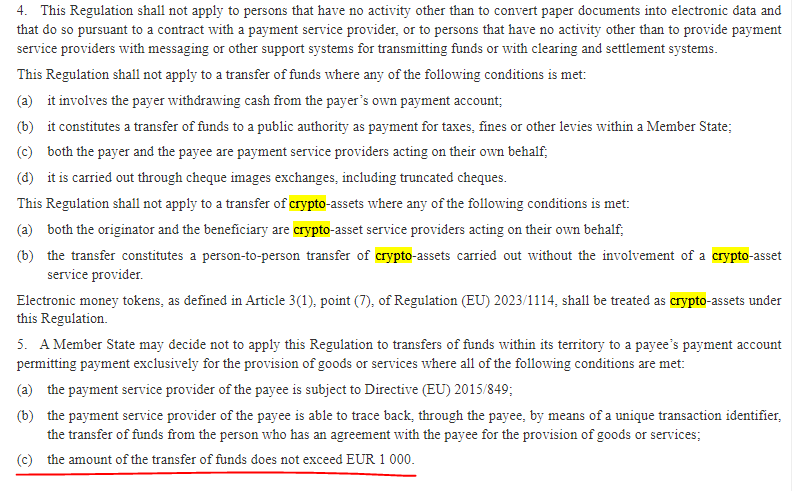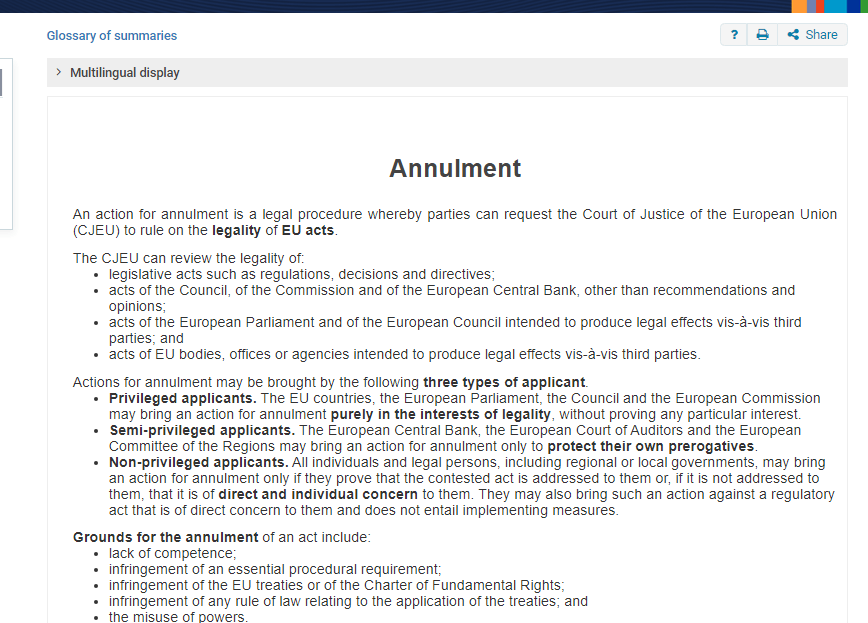A lawyer based in the Netherlands says that the travel rule can be stopped with help of the constitution. He released a call to action and urges to act quickly as time is running out to meet the deadline.
“I think the international bitcoin community should realize that is has the opportunity to challenge the travel rule of the FATF here in Europe before the European General Court under rules of annulment. But you must be quick.”
Simon Lelieveldt, regulatory and compliance consultant in the area of payments and banking, shared the following thread and call to action:
- “Thread on constitutionality of the Travel Rule in crypto. On june 9, 2023, the EU took the FATF rule 7b some steps further into the TFR regulation. It is little known however, that until 22 of August, it is possible to challenge it on constitutional grounds.”
- “First we take the travel rule as now adopted. You can find it here. Look at the scope and the difference between fiat and bitcoin. For fiat – 1000 EUR exemption applies. Bitcoin – no exemption.”

- “The FATF (more on that later) in its guidance allows for more leniency than the EU regulator/politicians have provided. In particular they seem to strike out the 1000 EUR threshold.”
- “The main idea in the travel rule is to throw in information about sender/receiver of payments or crypto transfers in the value chain. It’s not a good idea. In fact the cryptocommunity in 2019 advised the FATF to just require that information be made available. More proportional.”
“FATF is not a formal international organisation by the way. It is still a project group since 1989. Deliberatey so, so it hasn’t got the need for formally subscribe to principles like UN treaties as the UN resolution privacy in a digital age.”
- “Now look at the difference between rules for fiat and crypto, in terms of adding information and applicable regimes. Crypto transfers (widely defined) need to throw in a huge chunk of info more, using only the international regime. That’s deliberate, but not founded by data or evidence on necessity.”
- “And now look at the concerns of the European Data Protection Board, voiced in April 2023, outlining that regulatory alliance of Commission, Member States en EU Parliament may be going too far in infringement of fundamental rights and privacy. This is about data sharing and retention.”
- “The EU Court of Justice is not too happy about too extensive broadcasting and availability of customer data. It has verdicts in all kinds of areas, telecom, passenger data, ubo register which all limit the use of personal data to what is strictly needed.”
- “So what we can see is that we have the FATF ‘recommending’ to spread out data all over the world (a bad idea to begin with) and the EU rulemakers topping it up to a degree, eliminating proportionality and finalizing the rule without understanding it is related to other rules.”
“There are fundamental arguments against the whole EU travel rule as well as the part where it is disproportional in its workings.”
“There is only until August 23 (2 months and 14 days) to file a legal action to request a ruling that forbids the travel rule completely (as being superfluous with availability of data being most important) or with respect to thresholds and such.”

“I am now underway in the work of setting up a coordinated action to challenge the TFR in EU. The Dutch environment is particularly suited for this because we have a court case of premature application of this rule being denied.”










